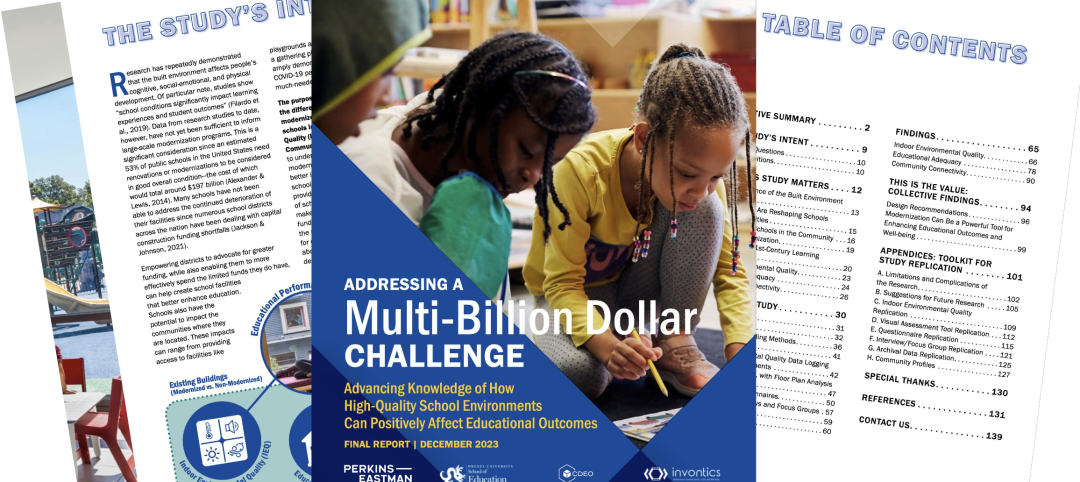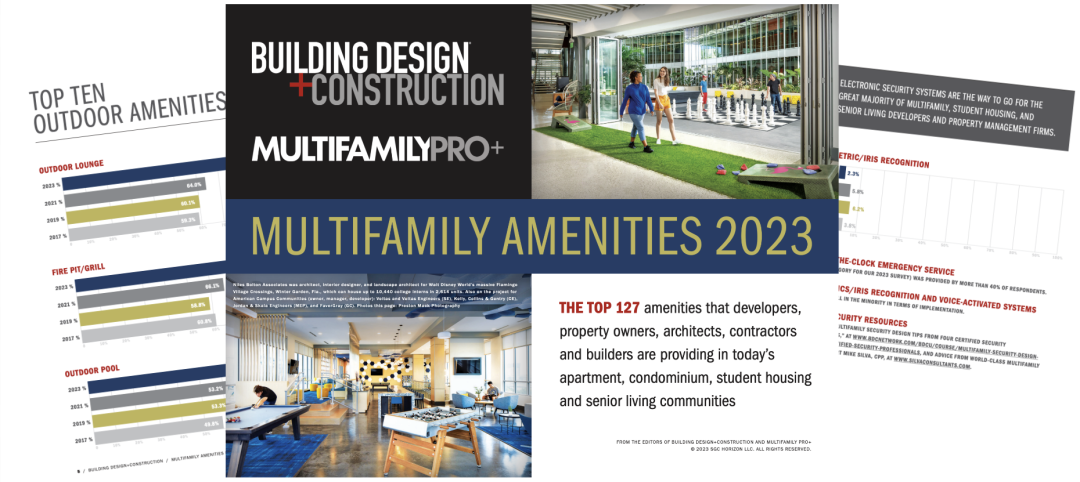A recent survey of 514 project, site, and construction managers in the U.S. and the United Kingdom, conducted by OnePoll for XYZ Reality, a leading provider of augmented reality applications, found that 94 percent had project backlogs and 63 percent admitted to delivering projects off schedule either “somewhat” to “very frequently.”
“Poor project performance, low productivity, and costly major project failures—and high-profile industry bankruptcies—continue to dog the sector,” wrote KPMG International in its recently released 2023 Global Construction Survey, based on responses from 257 engineering and construction firms and project owners around the world (29 percent of which were based in North America).


Respondents to KPMG’s survey, while mostly “cautiously optimistic” about their industry’s future, still lamented that less than half of their projects are being completed on time. Both surveys cite similar reasons why projects stall, starting with nagging supply-chain delays, labor shortages, and rising construction costs. KPMG is also seeing a “dramatic shift” by contractors away from fixed-price and guaranteed maximum-price contractors for major projects. Colin Cagney, the firm’s director of infrastructure, capital projects, and climate advisory in the U.S., surmises that contractors are attempting to mitigate their primary responsibility for performance risk.

XYZ Reality’s survey notes, too, that construction firms struggle for a variety of reasons to meet their clients’ sustainability goals, and their projects get delayed as well by unexpected design changes, labor shortages, and poor jobsite communication.


The biggest priority for respondents to KPMG’s survey is improving estimating accuracy, transferring risk, and increasing innovation. Both surveys depict an industry turning more toward technology for answers. Engineering-grade AR, AI, robotics, and drones are among the technological solutions preferred by respondents to XYZ Reality’s survey. More than eight in 10 respondents to KPMG’s survey have adopted mobile platforms, 43 percent are using robotics, and 40 percent are in early stages of using artificial intelligence. KPMG’s respondents also believe emerging technologies that include 3D printing have greater potential for delivering better returns on investment.
More than one-fifth of KPMG respondents have adopted modular and offsite manufacturing on all projects, and 60 percent on at least some projects.
“As our business grows, we want to be evolutionary rather than revolutionary,” stated John Murphy, CEO of J. Murphy & Sons Ltd., a London-based infrastructure construction firm, whose comments were among several respondents quoted in KPMG’s report. “We are continuously investing to keep up with the pace of technological change—constantly progressing.”

ESG and DEI are now priorities
This is KPMG’s 14th Global Construction Survey, which allows the firm the benefit of hindsight. One of the trends it has tracked is a stronger commitment among E+C firms to incorporate Environmental, Social, and Governance (ESG) precepts into their project practices. Nearly 54 percent of respondent firms “fully envision” the benefits of ESG and are aggressively pursuing maturity and improvement by embedding ESG into capital projects. (Admittedly, some of these pursuits are being mandated by stricter legislation.)
Firuzan Speroni, KPMG’s U.S. director of infrastructure, capital projects, and climate advisory, sees “a huge opportunity” for E+C firms and owners to commit to decarbonization of their buildings by measuring potential embodied carbon and choosing building materials with help to reduce it.
Respondents to the 2023 global survey ranked Diversity, Equity, and Inclusion as the third-most-important factor determining their success. Half of those respondents cited the importance of diversified workplace demographics to help address disruption. And 46 percent agreed that updating models for remote working and jobsite travel can contribute to construction projects’ resilience. However, the survey also found that the industry needs to do a better job of attracting and retaining talent. (For example, owners were only “relatively” concerned about reducing greenhouse gas emissions from their projects.)
Finding answers in tech
Both surveys highlight the centrality of innovation to the success of projects and businesses. For example, in 2017 E+C firms were only starting to deploy project management information systems, sensors, drones, or other robotics. This year’s survey, on the other hand, found that 81 percent of respondents from E+C firms say their organizations have adopted, or are starting to adopt, mobile platforms. The use of virtual reality tool has almost doubled (to 56 percent of respondents from 28 percent in 2017). Nearly half of E+C firms responding to the survey have adopted digital twin on at least some of their projects.
“The successful adopters are championing innovation from the very top, and investing in educating their teams,” observed Suneal Vora, a Partner in Business Consulting-Capital Projects and Industry 4.0 for KPMG in India. E+C firms must advocate for innovation, though, as owners seem somewhat less willing to adopt new technologies for their projects.

Keep up with a changing landscape
In summary, the key takeaways from the KPMG Global Construction Survey are:
•Address productivity as a matter of urgency, by taking an outside-in approach
•Master enterprise risk management, and have the confidence to resist a race to the bottom in choosing and financing projects
•Truly embed ESG as a component of a company’s sustainability profile and access to capital and talent
•Become data masters, which can help make jobsites safer and attract a new breed of digital worker.
Related Stories
Student Housing | Mar 27, 2024
March student housing preleasing in line with last year
Preleasing is still increasing at a historically fast pace, surpassing 61% in February 2024 and marking a 4.5% increase year-over-year.
K-12 Schools | Mar 18, 2024
New study shows connections between K-12 school modernizations, improved test scores, graduation rates
Conducted by Drexel University in conjunction with Perkins Eastman, the research study reveals K-12 school modernizations significantly impact key educational indicators, including test scores, graduation rates, and enrollment over time.
MFPRO+ News | Mar 16, 2024
Multifamily rents stable heading into spring 2024
National asking multifamily rents posted their first increase in over seven months in February. The average U.S. asking rent rose $1 to $1,713 in February 2024, up 0.6% year-over-year.
MFPRO+ News | Mar 12, 2024
Multifamily housing starts and permitting activity drop 10% year-over-year
The past year saw over 1.4 million new homes added to the national housing inventory. Despite the 4% growth in units, both the number of new homes under construction and the number of permits dropped year-over-year.
Multifamily Housing | Mar 4, 2024
Single-family rentals continue to grow in BTR communities
Single-family rentals are continuing to grow in built-to-rent communities. Both rent and occupancy growth have been strong in recent months while remaining a financially viable option for renters.
MFPRO+ News | Mar 2, 2024
Job gains boost Yardi Matrix National Rent Forecast for 2024
Multifamily asking rents broke the five-month streak of sequential average declines in January, rising 0.07 percent, shows a new special report from Yardi Matrix.
K-12 Schools | Feb 29, 2024
Average age of U.S. school buildings is just under 50 years
The average age of a main instructional school building in the United States is 49 years, according to a survey by the National Center for Education Statistics (NCES). About 38% of schools were built before 1970. Roughly half of the schools surveyed have undergone a major building renovation or addition.
MFPRO+ Research | Feb 28, 2024
New download: BD+C's 2023 Multifamily Amenities report
New research from Building Design+Construction and Multifamily Pro+ highlights the 127 top amenities that developers, property owners, architects, contractors, and builders are providing in today’s apartment, condominium, student housing, and senior living communities.
MFPRO+ Research | Feb 27, 2024
Most competitive rental markets of early 2024
The U.S. rental market in early 2024 is moderately competitive, with apartments taking an average of 41 days to find tenants, according to the latest RentCafe Market Competitivity Report.
Student Housing | Feb 21, 2024
Student housing preleasing continues to grow at record pace
Student housing preleasing continues to be robust even as rent growth has decelerated, according to the latest Yardi Matrix National Student Housing Report.


















